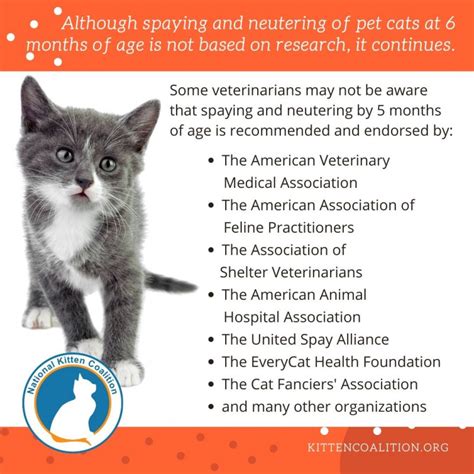Making the Right Choice: Kitten Spaying/Neutering Age
The decision of when to spay or neuter your kitten is a crucial one, impacting their health, behavior, and overall well-being. While the old guideline of waiting until six months is becoming outdated, the optimal time is now a topic of much discussion among veterinary professionals. This article delves into the complexities of kitten spaying and neutering age, exploring the benefits, risks, and factors influencing the best choice for your feline friend.
What is the traditional recommendation for spaying/neutering kittens?
Traditionally, veterinarians recommended waiting until a kitten reached six months of age before spaying or neutering. This was based on the belief that allowing kittens to mature slightly before surgery minimized potential risks and allowed for complete physical development. However, modern veterinary practices are increasingly advocating for earlier intervention.
What is the current recommendation for spaying/neutering kittens?
Many veterinary professionals now recommend spaying or neutering kittens as early as eight weeks of age, sometimes even earlier in certain circumstances. This earlier intervention offers significant advantages in preventing unwanted pregnancies and addressing population control issues. The perceived risks associated with early-age sterilization have largely been debunked through extensive research.
What are the benefits of early spaying/neutering?
Early spaying and neutering offer numerous benefits:
- Preventing Unwanted Litters: This is the most significant benefit, preventing the birth of countless kittens who may struggle to find homes.
- Reduced Risk of Certain Cancers: Spaying significantly reduces the risk of mammary cancer and uterine infections in female cats. Neutering lowers the risk of testicular cancer and prostate problems in males.
- Improved Behavior: Early sterilization can help mitigate behavioral problems such as spraying, aggression, and roaming, which are often driven by hormones.
- Population Control: Early sterilization plays a vital role in managing the overpopulation of stray and feral cats.
- Reduced Risk of Feline Immunodeficiency Virus (FIV) and Feline Leukemia Virus (FeLV): Spaying and neutering can help reduce the transmission of these potentially fatal diseases.
What are the potential risks of early spaying/neutering?
While the benefits outweigh the risks, some potential concerns exist:
- Slightly Increased Risk of Certain Conditions: Some studies suggest a slightly increased risk of certain orthopedic conditions in kittens spayed/neutered very early. However, the risk is relatively low and often outweighed by the benefits.
- Inconsistent Data: Research on the long-term effects of very early sterilization is still ongoing, and data can be inconsistent depending on factors like breed and individual kitten health.
What factors influence the optimal spaying/neutering age?
The best age for spaying or neutering your kitten depends on various factors:
- Kitten's Health: A healthy kitten is better suited for early sterilization. Your veterinarian will assess your kitten's overall health before scheduling the procedure.
- Breed: Certain breeds might have a slightly higher risk of certain conditions, influencing the veterinarian's recommendation.
- Veterinary Expertise: Your veterinarian's experience and expertise play a significant role in determining the best approach for your specific kitten.
How do I choose the best time to spay/neuter my kitten?
The best approach is to discuss the optimal spaying/neutering age with your veterinarian. They can assess your kitten's individual needs and health status, considering their breed, size, and overall well-being, and make an informed recommendation.
Is there a difference between spaying and neutering?
Yes, spaying is the surgical removal of the ovaries and uterus in female cats, while neutering is the surgical removal of the testicles in male cats.
What should I expect after my kitten's surgery?
After the surgery, your kitten will require careful monitoring and post-operative care, including pain management and restricted activity. Your veterinarian will provide detailed instructions on how to care for your kitten during recovery. Closely following these instructions will ensure a swift and uneventful recovery.
By working closely with your veterinarian and understanding the benefits and potential risks of early spaying/neutering, you can make the best decision for your kitten's health and well-being, contributing to a happier and healthier life for your feline companion. Remember, responsible pet ownership includes considering the long-term impact of your decisions.

